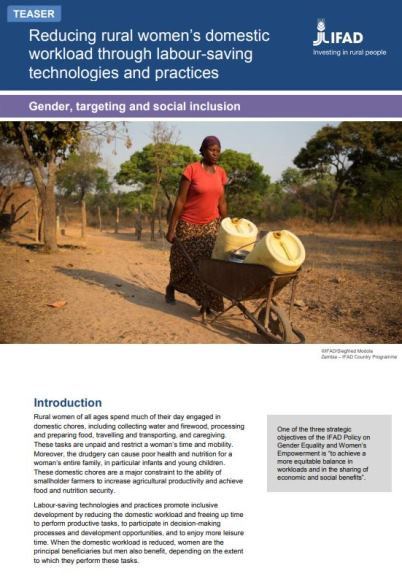Toolkit: Reducing rural women’s domestic workload through labour-saving technologies and practices
Toolkit: Reducing rural women’s domestic workload through labour-saving technologies and practices
One of the three strategic objectives of the IFAD Policy on Gender Equality and Women’s Empowerment is “to achieve a more equitable balance in workloads and in the sharing of economic and social benefits”.
Rural women of all ages spend much of their day engaged in domestic chores, including collecting water and firewood, processing and preparing food, travelling and transporting, and caregiving.These tasks are unpaid and restrict a woman’s time and mobility. Moreover, the drudgery can cause poor health and nutrition for a woman’s entire family, in particular infants and young children.
Labour-saving technologies and practices promote inclusive development by reducing the domestic workload and freeing up time to perform productive tasks, to participate in decision-making processes and development opportunities, and to enjoy more leisure time. They also make rural areas more attractive places for younger people to reside. When the domestic workload is reduced, women are the principal beneficiaries but men also benefit, depending on the extent to which they perform these tasks.

Topics
Gender
Download